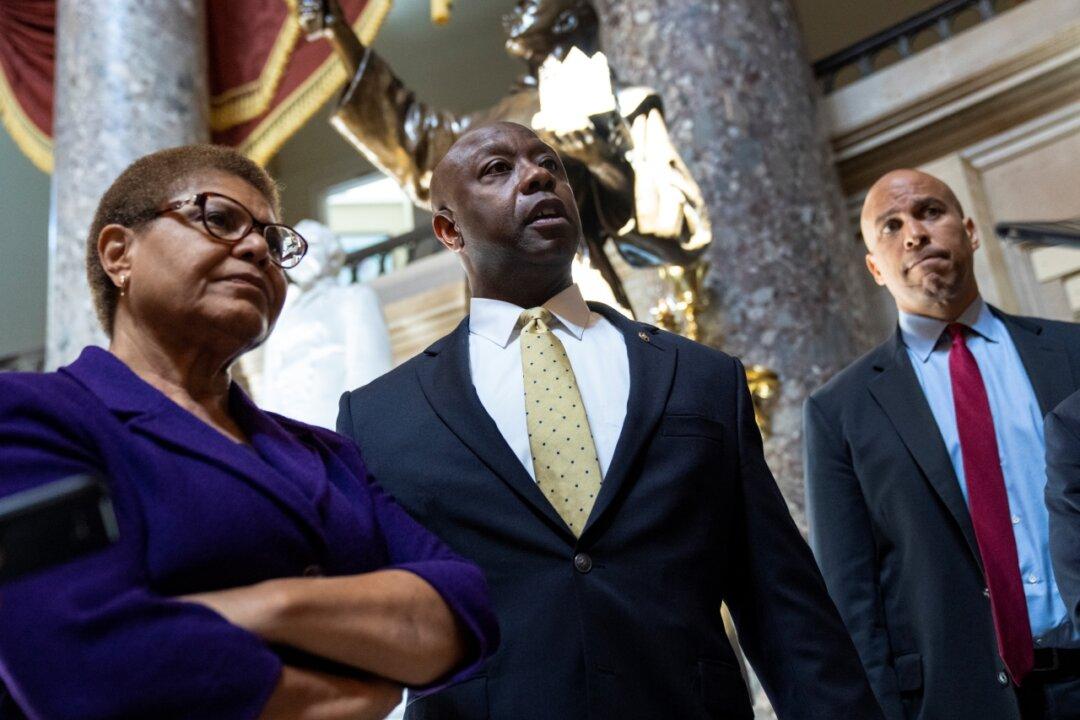A trio of bipartisan lawmakers leading negotiations on a comprehensive police reform package have reached a preliminary bipartisan agreement on the issue, they announced on June 24, bringing them one stop closer to passing the major bill.
Three of the five negotiators; lawmakers Sens. Tim Scott, (R-S.C.), and Cory Booker, (D-N.J.) and Rep. Karen Bass, (D-Calif.) touted their progress, which came after months of negotiations, in a joint statement on Thursday afternoon.




